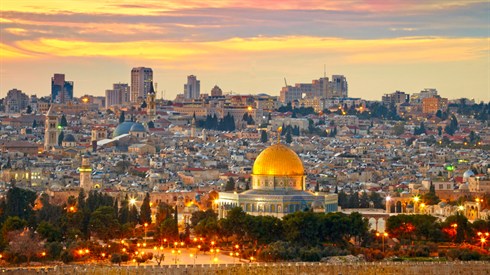664
Question
Is "Lashon HaKodesh" (The "Holy Language") only Biblical Hebrew or also Modern Hebrew?
Answer
The answer is unequivocally: yes, Hebrew is unquestionably Lashon HaKodesh:
1. All spoken languages inevitably evolve, as we see the Torah's Hebrew is a little different from that of the prophets, which is a little different from mishnaic Hebrew, which is a little different from modern Hebrew, but regarding all of them, chazal call them Lashon HaKodesh. For example, when our sages write that "whoever speaks Lashon HaKodesh has a share in the world to come" (Yerushalmi Shabbat 1, 3), they were referring to their Hebrew, for nobody spoke Tanachic Hebrew during that period, yet they considered their own Hebrew as Lashon HaKodesh.
2. In fact, Chaucer's or Shakespeare's English is much more different than today's English, compared to the difference between Biblical and Modern Hebrew. This is simply because languages evolve (through the entrance of slang and foreign words), when they are spoken, but for 2,000 years Hebrew was "in the freezer", always studied, but not spoken. Accordingly, a modern Frenchman cannot understand the Old French cited in Rashi, but any rabbinical student, does understand modern Hebrew.
3. The revivers of the Hebrew language, Eliezer ben Yehuda et al, were even more stubborn than the sages, only reluctantly allowing foreign words into our language. When they could choose, they even preferred to use the Biblical Hebrew as opposed to the Hebrew of the sages, and “turned the clock back” on the lingual evolution, "artificially" reviving the original, as much as possible. Accordingly, ironically our Hebrew today, is to a certain extent, more original than Mishnaic Hebrew.
4. Don't take my word for all this, but rather check it all for yourself: simply open any serious Hebrew dictionary which supplies the etymology, and you'll see that the decisive and vast majority of the words in Hebrew today stem from the Tanach or mishna. Even many technological words like "machshev" for computer (from the Hebrew root: ChShV, to think).
5. Even the Satmar rebbe, the biggest opponent of modern Hebrew, admits that it is Lashon HaKodesh, and that's why he opposes using it for secular topics (although his difficult opinion contradicts all of the rabbinic sources, which precisely advocate using Hebrew to elevate the secular to be holy!). For more details on the issue, see my sefer: "להרים את הדגל"", on the Israeli Flag and the mitzvah to speak Hebrew.
Nevertheless, if anyone prefers to "break their teeth" to speak exactly Biblical Hebrew, he is invited to try, but as we've seen, there's no reason to do so, and the mitzvah to speak Hebrew (Sifre, Dvarim 11, 19; Vayikra Rabba 32; Igrot Moshe Ev.H. iii, 35; Mishneh Halachot ix, 45), applies to modern Hebrew as well.




